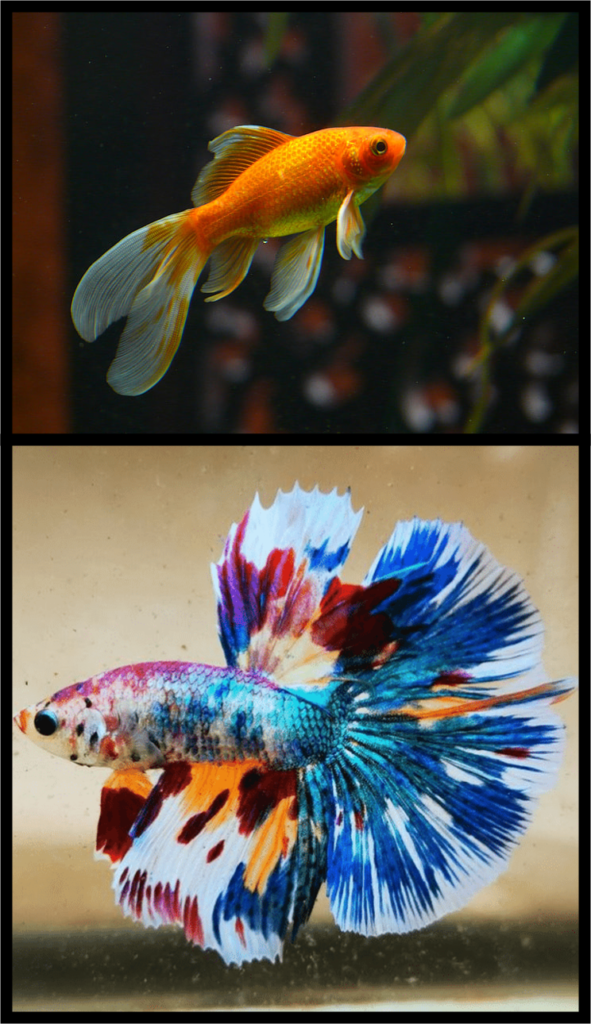Choosing an aquarium filter is a straightforward and an important process as they are the hearth of the aquarium. That’s the best investment you can make to your aquarium and benefit lifetime.
We’ve covered a ton of topics that are related to filtering systems in aquariums. If you haven’t read those yet, I strongly suggest you to take a look before purchasing a filter.
- Understanding the Nitrogen Cycle in an Aquarium
- Basics of Aquarium Filtration Systems
- Different filter types
If you’re up to speed on filtering and filtration systems, you should already know that there’s no such thing as “one size fits all” when buying an aquarium filter. The filter you’ll buy will depend on a couple factors such as the budget and your actual needs. Questions you should ask yourself when buying a filter as follows.
1. How big is your aquarium?
Aquarium filters works by moving the water through a filter media. Dirty water comes in and the clean water goes out. The more water you have, the more work for the filter. As a rule of thumb, the aquarium filters should turn the water over 4 or 5 times in an hour. If you have a 30 gallon aquarium, that means you should go with a filter with flow rates 120 gallon per hour or 150 gallon per hour. Most aquarium filters have ratings on them for folks who cannot decide. I’d personally go with a higher rated than the aquarium I have because those ratings are assigned in an “ideal” scenario which you’d less likely to have.
2. What type of fish and how many you’ll keep?

The fish type you have is important in two ways. Some fish (e.g. betta fish) like slow moving, steady waters whereas some fish (e.g. danios) like a lot of flow. If you use a high flow rate filter in a small aquarium, the flow will actually stress out the fish and the plants. Bioload is the second reason why you should pick a proper filter. If your aquarium is under high bioload and your filtering is not enough, then the water quality will decrease over time. Your aquarium filter should be able to handle the fish and the waste they produce.
For example – goldfish are the type of fish that has the highest bioload of all. Their digestive systems are not fully developed. They don’t have a stomach. They digest food as it moves through the intestines. That’s why most of the food eaten will be pooped out. The poop will keep polluting the water unless you have a top-notch filter.
3. Do you have a planted aquarium or not?
Most live plants do not like the high flow rates and the current. If you’re considering having live plants, I’d suggest you go with a filter which you can adjust the output rate. Live plants will also help with the biological filtration as they provide a home for the nitrifying bacteria. Live plants do not like air bubbles as they reduce the dissolved carbon dioxide amount in the water which the plants needs as a food source.
4. How much $ you’re willing to spend?
There are a lot of filter types you can choose from. Some are cheap, some are not. You can also DIY your own filter (or a sump) if you’re feeling experimental. But all of these options comes with a price. There’s no point in stressing yourself with the cost of the filter while you’re trying to enjoy the hobby. That’s why picking the best filter for your needs is key.
For example – canister filters provides the best in class filtering but they are pricey. I personally would not recommend canister filters if you don’t have a big, high bioload aquarium with special needs. Otherwise, it’s hard to justify the cost of the canister whereas you can purchase multiple hang-on-back filters. But, that does not mean that we can use hang-on-back filters for all aquariums. Sponge filters would work better if you have a shrimp farm compared to hang-on-back filters.
There's no such thing as "one-size fits all" for aquarium filters. Choosing an aquarium filter is only gets easier if you can answer the questions above.